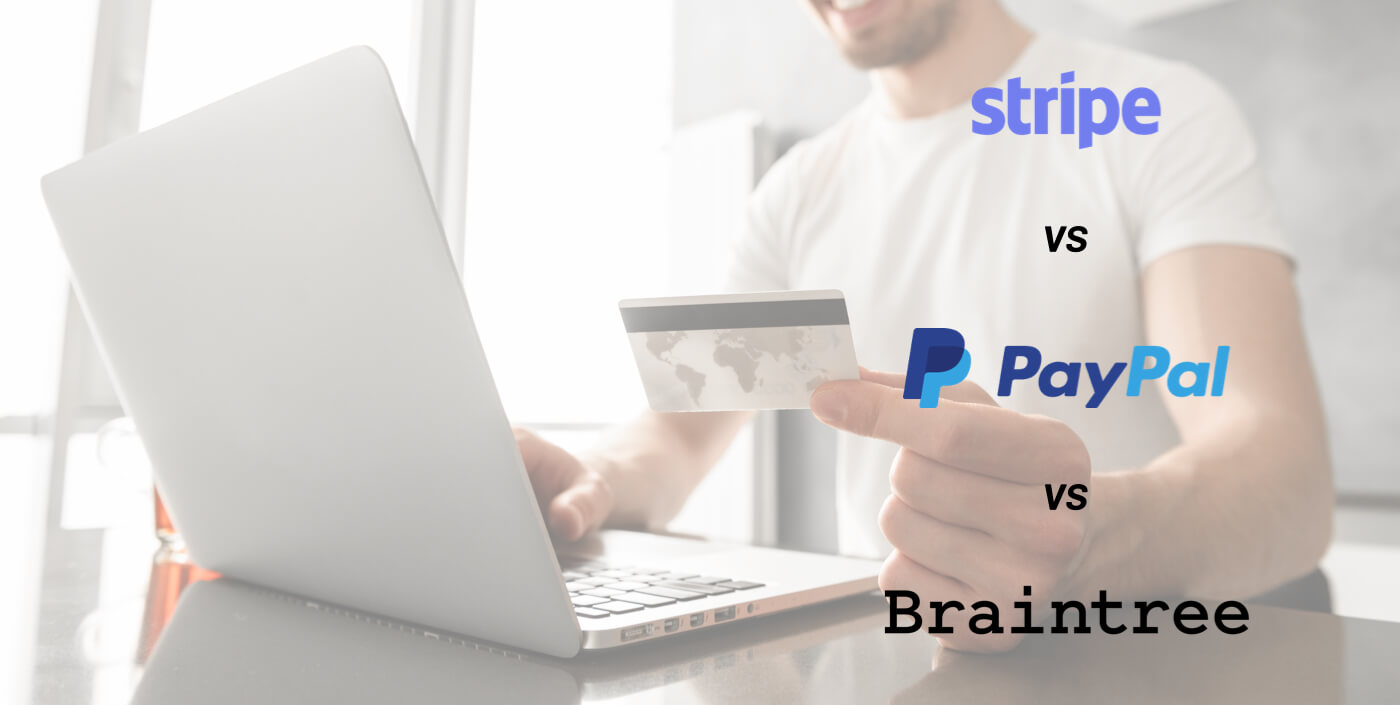-

How Much it ll cost to build an app like
- Cost to develop an Uber Tow Truck App
- Cost to develop a Pest Control App
- Cost To Develop a Handyman App Like Uber
- Cost To Develop a Doctor Appointment Booking App
- Cost To Develop An App Like MoodBites
- Cost To Develop An App Like SkipTheDishes
- Cost To Develop An App Like Q Chat
- Cost To Develop An App Like TickTick
- Cost To Develop An App Like ContractBook
- Cost To Develop An App Like Utter
-

How Much it ll cost to build an app like
- Cost to develop a Video Editing Mobile App like Magisto
- Cost to develop a Live Video Streaming App like Twitch
- Cost to develop an app like Home Workout- No equipment
- Cost to develop a Sports News app like theScore
- Cost to develop an Application like Reddit
- Cost to develop a Sports News app like theScore
- Cost to develop an E-learning platform like Udemy
- Cost to develop an On Demand Doctor App like Heal App
*

Payment Platforms: Which One to Use? A Comparison Between Stripe, PayPal, & Braintree
During the web application or mobile application development process that will be accepting monetary transactions, one of the choices you will need to consider is which payment platform you want to incorporate into your software. One of the first aspects you should be looking at with payment platforms is their policies and which businesses use these online platforms to drive their own sales. For instance, large companies like Uber, use Braintree, while prominent brands like Adidas use Stripe. PayPal, on the other hand, is a very common payment platform for numerous brands like eBay and Shopify. While looking at who uses which platform is a great way to get a quick glance at which payment platform is preferred by the best, doing a direct comparison, will always yield you with better answers. So, let’s take a look at Stripe, PayPal, and Braintree; what payment methods they take, what their fees are, and what they offer to various types of marketplaces.
Wait, Isn’t Braintree & PayPal the Same?
If you are familiar with Braintree & PayPal, you may already be aware that there is a relationship between the two, as Braintree is a division of PayPal that caters to ecommerce companies looking to process mobile and web payments. While Braintree is a division of PayPal, PayPal itself specializes in offering an alternative and electronic method for those wishing to get away from using paper methods like checks. To put this plainly, PayPal is an online payment processor for online vendors dealing in online money transfers, while Braintree, is an online payment processor for mobile and web payments. This difference is enough that both can be considered as standalone platform options.
What Type of Payment Method Do Each of These Platforms Accept?
For those looking to open up or run an ecommerce website, the most common payment methods you are going to want to accept are Visa, Mastercard, and American Express credit cards. However, if you want to cater to a larger credit card market, all three payment platforms, also provide your customers with access to Maestro, Diners Club, Discover, and JCB credit cards. While this is great, not everyone uses credit cards worldwide and this is where the breakdown between the three platforms happens.
- Stripe: One of the major advantages with Stripe is that it allows you reach into the Chinese market with AliPay, a third-party online payment platform. For those who want to offer direct bank account charges, Stripe gives you access to Automated Clearing House. Stripe also accepts Android Pay, and Apple Pay.
- Braintree: Because Braintree is a division of PayPal, it integrates seamlessly with its parent company. This means that you can accept PayPal payments with Braintree as well as Venmo payments. PayPal also owns Venmo, which is a digital wallet that allows users to transfer funds from one another via a mobile application. Braintree also accepts Android Pay, and Apple Pay.
- PayPal: While PayPal offers a ton of credit card options and money transfers to and from bank accounts, you can only accept debit, credit, or PayPal payments. This means that you cannot accept payments from foreign online payment platforms.
How Do Chargebacks, Refunds, and Fees Compare?
One of the major considerations that any online ecommerce website or mobile app owner is going to take into account, is how much they will be required to pay out to use the payment platform. The amount is dependent on how each platform handles chargebacks, refunds, and service fees. Here is how Stripe, PayPal, and Braintree deal with these categories.
- Chargebacks & Refunds: Regardless of what platform you use, all chargeback transactions will be done at an expense to you. Meaning that if a charge is disputed, you will be dinged for a specific amount. In the case of Stripe and Braintree, you will be charged $15 for the chargeback. With PayPal, you will be charged $20 for the chargeback.
- If a chargeback is resolved in your favor as the merchant, you will get the entire chargeback transaction refunded. This means that with Stripe and Braintree, you would receive that $15 back. With PayPal, you would receive your $20 back but would still be dinged for $0.30.
- When you issue a refund, the fee that you pay for the transaction in the first place, will be refunded to you if you are using Stripe or Braintree. If you are using PayPal, you will get the transaction fee back for the refund, but you will be charged $0.30 for the “new” transaction.
On all of these platforms, the chargeback, the transaction fee, and the refund amount will be taken directly from your bank account if your merchant account does not have the funds available.
What About Transaction & Account Fees?
- There are no monthly or yearly fees associated with using the Stripe or Braintree platforms.
- If you use the PayPal Payment Standard or Express Checkout options, these are free to use as well.
- If you want a PayPal Pro Plan, this requires you to have a business account, which has a $30 monthly fee attached to it.
- With regards to transaction fees, both Stripe and Braintree will charge you at a rate of 2.9% and $0.30 for every transaction. This is regardless of where the transaction was located geographically. This applies to credit cards.
- PayPal, on the other hand, charges you at a rate of 2.9% and $0.30 for every transaction that comes from the United States. If you are processing international payments, the percentage rate is 3.9% plus standard international fee payments. This applies to credit cards.
Non-Credit Card Payments: What Are The Fees With These?
What About AMEX?
- Stripe offers the standard fee of 2.9% and $0.30 for every AMEX transaction.
- PayPal offers 3.5% and $0.30 for every AMEX transaction.
- Braintree offers 3.25% and $0.30 for every AMEX transaction.
So, PayPal will end up costing you more if you want to deal primarily in AMEX transactions.
How Do These Payment Platforms Handle Online Marketplace Transactions?
A common issue that occurs with online marketplace transactions resides around how the service fee and item fee is managed as the marketplace owner should be given the service fee for using the platform and the seller should be given the value of the purchased item. One way to go about this is by splitting the payment, which is exactly what Stripe, PayPal, and Braintree offers. Stripe has a program called Connect which handles split payments, Braintree has a program called Marketplace, and PayPal uses their Adaptive Payments System. Unfortunately, PayPal’s Adaptive Payments System only works with select partners, so those who are using online marketplaces are better off using Braintree’s Marketplace option. Both Stripe’s Connect and Braintree’s Marketplace programs cost the same to use and both automatically open up merchant accounts for those selling in marketplaces.
Where Can You Use Stripe, PayPal, and Braintree?
While any type of modern storefront or marketplace can be created using numerous types of backend programming languages, if you want to incorporate a payment platform, the platform must have an Application Programming Interface that works with the backend language of your storefront or marketplace. Why? An Application Programming Interface or API will provide the communication needed between your storefront and your payment platform.
Luckily, Stripe, PayPal, and Braintree all have very well-documented APIs with the most commonly used backend languages, including Ruby, PHP, Node.js, and Ruby on Rails. If you are looking at developing a mobile commerce application, Stripe, PayPal, and Braintree also have APIs for both Android and IOS.
While there is no straightforward answer to which payment platform is better, the main considerations you want to take into account is the availability of each within your target geographies, what the fees are like, and what type of business protection each type of account gives. You may also want to conduct some demographic research on your target market to determine which payment methods your customers prefer before committing to one.
If you really want to know about Smart Payment Platforms or want to boost-up your business with Smart Payment Platform development, then please get in touch with us.

Author
Our Partners




WhatsApp us


